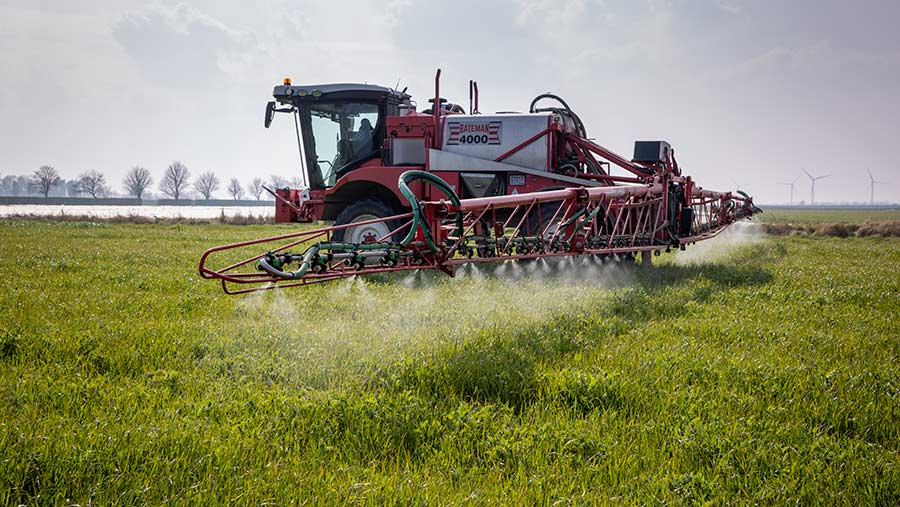Glyphosate relicensed for 10 years after EU vote stalemate
 © GNP
© GNP The EU Commission is set to relicense the weedkiller glyphosate for a further 10 years after member states failed to reach a majority against or in favour of renewal.
A second vote failed to reach a qualified majority from member states’ representatives in the appeal committee on Thursday (16 November).
With no qualified majority for reapproval, the commission has decided to renew glyphosate’s licence for use in the EU to December 2033, subject to certain conditions and restrictions.
See also: Glyphosate use as a desiccant under EU spotlight
One condition includes a ban on the use of glyphosate as a pre-harvest desiccant.
But one industry source said: “We don’t believe the pre-harvest use of glyphosate in the case of oilseed rape and cereals will change in countries where this is necessary.
“We expect where member states believe they need to use it [pre-harvest], they will be able to do so for weed control in line with good agricultural practices.”
Split reaction
There has been a mixed reaction to the EU’s announcement, which has been greeted with relief by farming organisations but anger from environmental groups, who claim the chemical poses a danger to people’s health.
German agrochemical giant Bayer, which manufactures the glyphosate-based weedkiller Roundup, expressed relief over the extension.
A spokesperson for Bayer UK said: “We are pleased for growers, who need access to glyphosate as an important tool for sustainable farming, that the European Commission has today confirmed it will reapprove glyphosate for use in the EU for 10 years.
“This is an improvement on the five-year authorisation granted in 2017, providing much-needed confidence and certainty for farmers and the wider food chain.”
Pesticide Action Network response
But anti-pesticides lobby Pesticide Action Network (PAN) Europe expressed frustration over the EU’s decision.
“We regret that the commission turns its back to independent science and citizens’ concerns and plans to reapprove this dangerous herbicide for another 10 years,” said Angeliki Lysimachou, head of science and Policy at PAN Europe.
“There is alarming evidence highlighting the cancer risks associated with glyphosate, along with the myriad of other reported adverse effects.”
The EU renewal of glyphosate’s licence will affect Ireland and Northern Ireland, while England, Scotland and Wales continue with the existing authorisation until a GB renewal process is put in place.
The current GB licence for glyphosate is due to expire in December 2025. However, it is expected that the UK government will initiate a renewal process before then.
If Labour wins power at the general election, it has indicated it will seek to closely follow EU legislation around plant protection products.
NFU reaction
The NFU said British farmers and growers will continue to use glyphosate as long as it is safe and legal to do so to ensure environmental sustainability and a secure supply of high-quality, affordable food.
NFU vice-president David Exwood said: “Glyphosate has long been one of those essential products to control weeds before planting and is vital due to the popularity of a regenerative, no-till or minimum till approach – farm practices shown to be good for climate change mitigation, as well as decreasing soil erosion.
“The NFU has always lobbied for the regulation to be led by the science and evidence. In the EU, more than 11,000 pages of independent expert review of that evidence has concluded its safety and provides good reason for EU regulators to reapprove glyphosate.”

